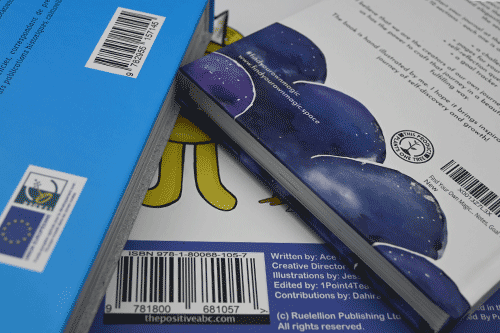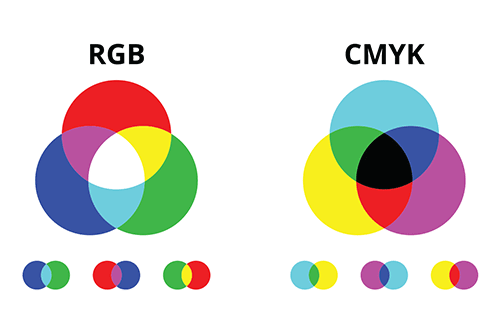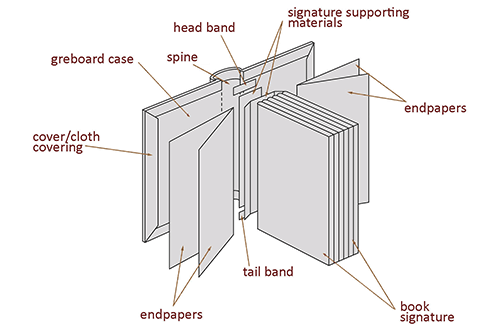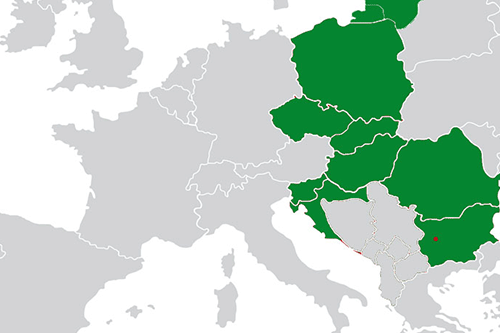Comic Book printing: a multitude of possibilities to please your readers!
Designed for long-term use, comic books are powerful drivers of artistic creativity for fans of the genre. To allow readers to dive into printed works with pleasure, you need to pay close attention to the rendering of blacks and colours in the artwork, always keeping an expert eye on the nuances required by the demanding manufacturing process. A comic book is successful when you can read and browse through it savouring all the nuances, both textual and graphic.
To achieve these manufacturing results, our technical know-how will respond to your requests one by one. While manufacturing quality is a requirement for any comic book, there are many options available concerning the technical parameters. To help you get to grips with the world of comic books and their characteristics, we have classified them into five categories: “Standard”, “Comics”, “Manga”, “Alternative” and “Luxury”.
Make the correct choice for your comic book at a glance!
A table at the end will give you an overview of the available options.
“Standard” comic books
Generally, these are printed in A4 format (210 x 297 mm), using the four-colour process. Depending on the presentation desired, the paper used can be matte, half-matte / satin or gloss coated, or offset. They are most often held together with a hardcover (hardback) to better protect the interior during the many book browsing by readers, and the cover finish is for preference film or varnish.
Standard Comic Book printing doesn’t have any particular pitfalls, but if the chosen cover is flexible, then it’s better to choose a PUR glue or a stitched binding that will prevent rapid degradation, given the exact requirements of the format as well as the expectation of frequent use.

Comics
‘Comics’ is the term coined in the United States to refer to their mainstream comic books, which was then brought over into British English. The word ‘comic’ was used because the first such strips published in major newspapers in the United States, especially the titles of the press tycoon Randolph Hearst, were particularly humorous. In the USA the term ‘comic books’ when applied to graphic novels has become almost synonymous with ‘superhero comics’ because this genre is predominant in the United States. Disney comics or humourous graphic novels are thus referred to with the generic term “Comic Strips”.
Technically, comics printed at Pulsio Print fall into two broad categories:
Stapled comics
These are often in A5 (148 x 210 mm), 165 x 240 mm or American 170 x 260 mm format. They are printed in four-colour double-sided (4 + 4 print) on coated paper 115 g / m2, more rarely in 100 g / m2. Note however that the main limiting factor for this category is the restricted number of pages – if your book exceeds 96 pages we recommend you choose the glued option.
Comics with glued squared spine/paperback
Similar to stitched comic books, they are assembled in a cahier and made with a soft cover with or without flaps, printed single-sided or double-sided in four-colour. The interior printing (usually four-colour but also black and white) can be done with offset or coated paper. To obtain a ‘vintage’ effect we can use bulky paper; its intrinsic nature gives it that vintage look: the colours are by choice a little faded, the pores of the paper trap residues of the ink solvent and the resulting smell is reminiscent of old-fashioned comics, which everyone will agree adds to the charm!
More elaborate or luxury comics are appearing nowadays; their manufacture is with hard cover binding, and with cover finishes ranging from selective film to coloured or gilded hot stamping, as well as all the other possible special effects available to add value to the cover, like for example selective satin or anti-scratch varnishes on some parts of the cover and spine.


Manga
The high demands that this type of graphic novel imposes on printing companies can be considered as a supreme test of their mastery of the art of printing. According to our customers, Pulsio Print is part of the narrow circle of European printers capable of producing mangas of superior quality. A deep understanding of the printing processes (the role of rasterising to avoid any moiré effect for example), a good knowledge of the behaviour of a variety of paper types, and perfect mastery of the complex finishes that these works require, are the key requirements to be mastered by the printer in order to obtain perfect success in this very particular type of print manufacturing.
True to their origins in East Asia in general and Japan in particular, mangas are bound ‘back to front’ according to Western understanding – the front endpaper for the cover is the one that plays the role of the fourth in European books. Always in paperback, their covers are often printed on a card lying on one side, in monochrome recto, because they are always accompanied by a jacket.

The interiors of mangas are no easier to create. In 80% of cases they are printed on bulky paper (e.g. Stora Enso 80 g / m2 or Danube creamy). The print is usually in monochrome – in shades of gray with rather large visual areas. This makes the right choice of rasterising a prerequisite for successful printing without a moiré effect. In fact, it also makes manga printing in digital mode impossible – even short runs need to be offset printed. Sometimes the insides of mangas include an extra cahier: several sheets of coated paper, printed in four-colour.


Alternative comic books and graphic novels
Alternative comic books have appeared in various places as a trend away from the major publishing networks, earning them the nickname ‘independent comic books’. This cultural phenomenon has several different goals, but the most important for printing purposes is the total freedom of choice of formats, papers, bindings and finishes. All sizes and shapes are allowed – combinations of different types of paper, folded sheets inside the book, perforated hard covers, all customised at the request of our customers.
Pulsio Print puts its expertise at your disposal from the very beginning of your project to guide you through all the steps of the development of your alternative and unique comic book!
The term “Graphic Novel” is generally used to refer to longer, more serious comic books intended for adult readership, or sometimes long young adult comic books. Without traditional fixed pagination, in a single volume or in several, in black and white or in colour, graphic novels by their very nature do not constitute a precise genre of comic books.
Luxury comics
This does not represent a specific genre, but a way of highlighting your works. Any comic book can be boxed for better presentation, to celebrate an event (birthday or other), to group together a series, etc. Slipcases, to any degree of luxury, may contain single works or entire collections.
Apart from using presentation boxes, you can ensure a luxury look for your comic books by applying special finishes: hot stamping; bookmarks, headbands; printed endpapers; soft touch lamination with or without selective varnish; canvas; jackets etc.
Armed with its 14 years of experience in the field, Pulsio Print can help you from the creation of the packaging, through the choice of graphic design, right up to the printing and assembly of the casing.




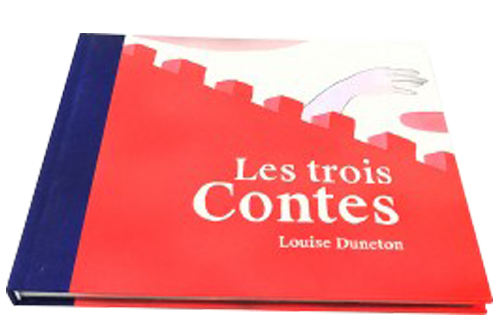
Today, comic books or graphic novels are an immense universe where many rules have their say. In this universe of multiple choices, your free and creative spirit can sometimes get lost. The following table, although very schematic, will help you get to grips with it all.
| MARKRT POSITION | FORMAT | PAPER | BINDING | FINISH |
| Economy | 13X18 | bulky 80g Storaenso classic / coated 115g / offset 100g | glued / soft cover | glossy / matte lamination |
| Mid-range | 16,5×24 -21×29,7 | offset 120 g / coated 130g | stitched / glued | glossy / matte lamination + selective varnish |
| Luxury | Square format from 20 × 20 / A4 | 140g offset / coated 150 g special paper: munken pure, olin 150 g | stitched / hardback | hot stamping; bookmarks; printed endpapers; soft touch coating / selective varnish / canvas; jacket |
Pulsio Print’s expert advisers are waiting to hear your ideas to guide you through the many choices and options available to comic book lovers from 7 to 103 years old!
Check our price: it’s free and it only takes seconds!
